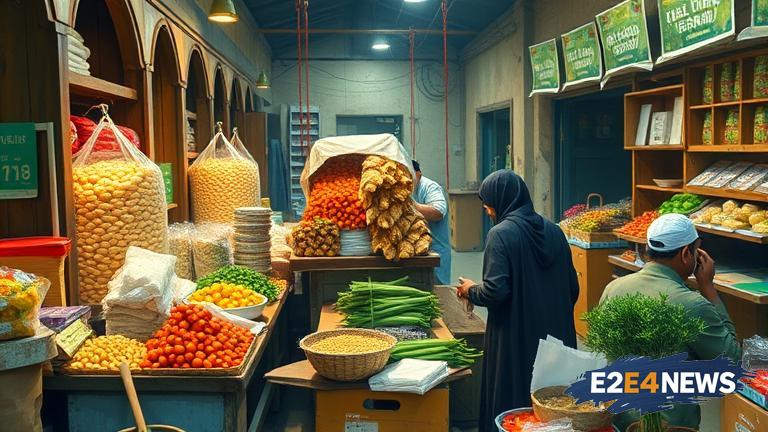The global halal market has experienced significant growth in recent years, driven by the increasing demand for halal products from Muslim-majority countries. Indonesia, with its large Muslim population, is well-positioned to capitalize on this trend. The country’s strategic location and extensive trade networks make it an ideal hub for the production and distribution of halal products. The Indonesian government has recognized the potential of the halal industry and has implemented various initiatives to support its growth. These initiatives include the establishment of a national halal certification agency and the development of halal-friendly infrastructure. As a result, Indonesia has become an attractive destination for investors and businesses looking to tap into the global halal market. The country’s halal industry is expected to continue growing, driven by increasing demand from both domestic and international markets. The global halal market is projected to reach $3 trillion by 2025, with the food and beverage sector being the largest contributor. Indonesia’s halal food industry is expected to play a significant role in this growth, with the country’s halal-certified food products being exported to countries around the world. The Indonesian government has set a target of increasing the country’s halal exports to $10 billion by 2025. To achieve this target, the government is working to improve the country’s halal certification process and increase awareness of the importance of halal certification among businesses. The government is also providing support to small and medium-sized enterprises (SMEs) in the halal industry, recognizing the important role they play in driving growth and innovation. In addition to food and beverages, Indonesia’s halal industry also includes pharmaceuticals, cosmetics, and tourism. The country’s halal tourism sector is expected to experience significant growth, driven by increasing demand from Muslim tourists. Indonesia’s halal-friendly hotels, restaurants, and tourist attractions are being developed to cater to this demand. The country’s halal industry is also expected to create new job opportunities and stimulate economic growth. However, there are challenges that need to be addressed, including the need for greater awareness and understanding of halal certification among businesses and consumers. The Indonesian government is working to address these challenges through education and outreach programs. Overall, Indonesia’s emergence as a global halal hub is driven by a combination of factors, including the country’s large Muslim population, strategic location, and government support. As the global demand for halal products continues to grow, Indonesia is well-positioned to play a leading role in the halal industry. The country’s halal industry is expected to experience significant growth in the coming years, driven by increasing demand from both domestic and international markets. With the right support and infrastructure, Indonesia’s halal industry has the potential to become a major driver of economic growth and job creation. The Indonesian government is committed to supporting the growth of the halal industry, recognizing its potential to contribute to the country’s economic development. In conclusion, Indonesia’s emergence as a global halal hub is a significant development that is expected to have far-reaching implications for the country’s economy and trade relationships. As the global halal market continues to grow, Indonesia is well-positioned to play a leading role in the industry, driven by its large Muslim population, strategic location, and government support.
